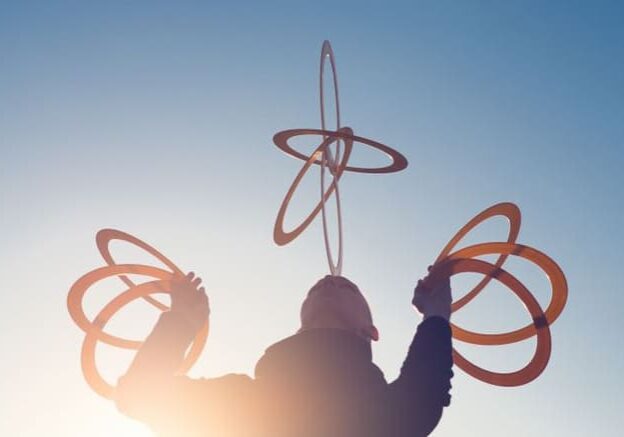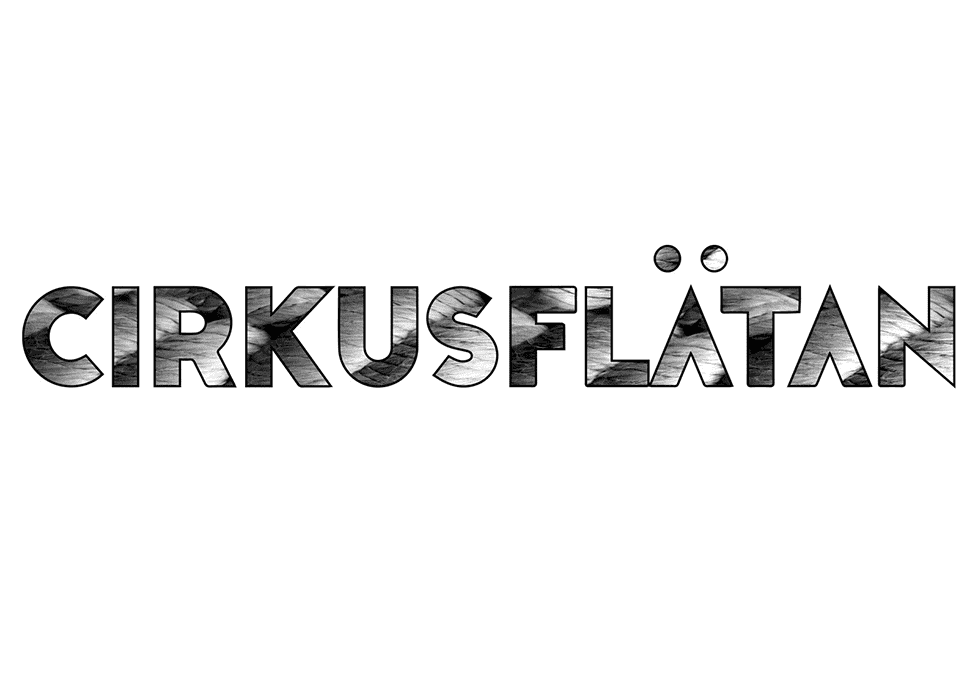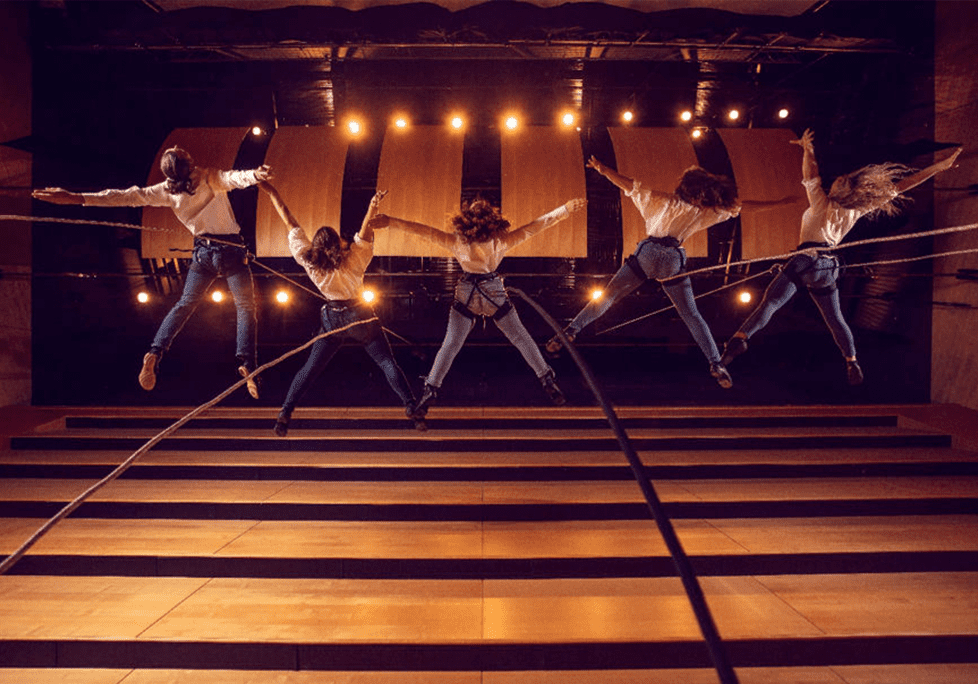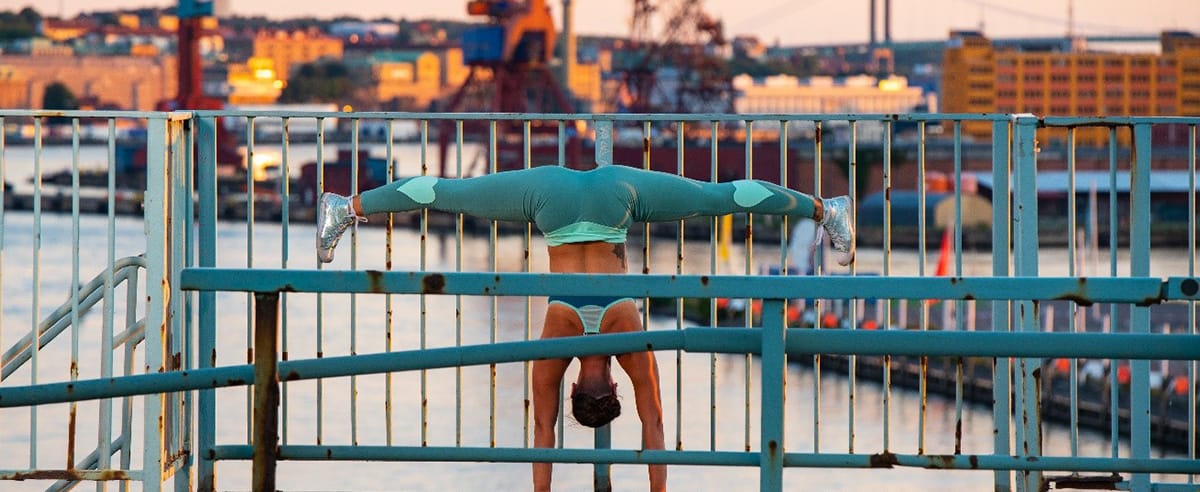Sweden has taken innovative steps to highlight how important the arts are to our health and wellbeing. In the Västra Götaland region and two other regions across the country, Circus Consultants have been taken on board as part of the region’s Cultural Strategy. We talk with Circus Consultant, Karin Skierus to discuss how this unique role came to be and the impact of culture on health and wellbeing in Sweden.
How connected are the arts and health? The answer? Very. Megatrends caused by factors such as digitalisation, social isolation, particularly for older people, an ageing population and environmental issues are just a few of the barriers interlinked between both the cultural and health sector. Understanding how these areas are intrinsically connected highlights how cross-sectorial work can help create a fair, diverse, and equitable society. But how can unique roles such as Circus Consultants influence our health and wellbeing?


Empowering environments
One of the guiding principles of the Västra Götaland Region’s Cultural Policy is ‘social relevance’. Creating environments and organisations that empower communities is a significant standpoint of this policy. This is particularly vital for deprived areas. For this region of Sweden, an intrinsic factor for the development of society are the arts and cultural sectors, working towards creating a cultural region that holds social equality, sustainability, gender equality and diversity at its heart.
“The decision to create this new position has been based on the Regional Council's culture strategy. The Region already had consultants in a broad variety of art forms and saw the need for someone working, specifically in the contemporary circus. There are five guiding perspectives for Region Västra Götaland’s cultural policy and the region hopes to include its communities in a cultural life that truly inspires them", Karin explains.
With a varied background in the art of circus – from using impressive chorographical skills including fire and aerial acrobatics, Karin embodies the power of the arts, in particularly, the art of dance and its ability to strengthen our wellbeing.
“In April 2020 I started my work as the first Circus Consultant in the Västra Götaland Region, a region with a population of 1.7 million people, in western Sweden. As a Circus Consultant, I work as a facilitator and developer, with the aim to broaden the field of circus to increase the possibilities for children and young people to socialise and express themselves through this craft.”
Karins’ role as a consultant challenges the traditional approach to wellbeing, that serves as a pathway for creativity in government policy, embracing an ‘open democracy’, as set out in the UN Convention of Human Rights – which outlines that everyone has the right to participate in cultural life.
Wellbeing benefits
Circus has been shown to provide individuals, particularly children and young people, with coping mechanisms to support mental health conditions. Benefits such as stress relief, self-esteem, confidence, and tangible socialisation allow individuals to feel empowered. In Finland, a study exploring 'the wellbeing effects of circus' found that this skillset can significantly enrich the daily lives of individuals from all age groups, providing them with variety and recreation. It also highlighted the inclusivity of this art form, open to all people, including those with physical and developmental disabilities, mental health rehabilitants and those families in low-income households.
"Whether you are alone or as part of a group, circus training circles instil a courage. There is something special about the impossibility of many circus disciplines, but 'being brave' is not necessary to do dangerous things, it is about conquering personal challenges. Courage can mean saying your name in front of a group or to leap helter-skelter in the air. For one to realise this and surmount their vulnerabilities is hugely beneficial. To do so together strengthens the community.
Circus skills are a tool for better health, physically and mentally, using movement to build self-esteem. Similarly, such skills can are also a pedagogical implementation. Whether you are a spectator, an artist or just a beginner, you will encounter both compassion and bravery in many ways. Built upon the impossible and extraordinary, puts you outside of your comfort zone, teaching you how to manage personal challenges, fears, and struggles."
Cirkusflätan - community building
The Cirkusflätan (The Circus Braid) project is an interregional social enterprise, created to help further build a cultural infrastructure based on the art of circus. Increasing infrastructural funds as well as dialogue between the municipalities of Östergötland, Stockholm, and Västra Götaland, each council focuses on perspectives from the pedagogical, practioner, and organiser.
“The inspiration to come together in this enterprise began with a conversation that highlighted the lack of resources, knowledge, and time in cultural outputs in our respective regions. Now the project has evolved and includes four more regions, which gives us the range to better accommodate the needs of circus art.”
“To measure the health of the public, you need more than statistically healthy individuals, and physical parameters. The presence of cultural expression is a strong indicator of a healthy population- when a community thrives, so does its cultural output. Culture can also be the voice, the scream, the echo, and the whisper. It will be the last thing we hold on to and the first thing to sprout, branch and connect when we seek new ground.”
Read Cirkusflätan's 2021 annual report to explore its impact across the regions.


Social determinants
Elisabeth Bengtsson, Regional Developer and Senior officer from the Department of Social Sustainability, in the region of Västra Götaland exemplifies how, within the cluster of prevention and promotion, the arts and culture (defined in a broad sense) can have a great impact on, the social determinants of health as it can support child development by encouraging health-promoting behaviours, help to prevent ill health through caregiving support and support people with neurodevelopmental and neurological disorders.
"In 2019, WHO published a report titled: 'What is the evidence on the role of the arts in improving health and well-being? A scoping review'. The review found evidence from a wide variety of studies using diverse methodologies. Overall, the findings demonstrate what we, as public health professionals have always known, that the arts can potentially impact both mental and physical health. The results became clustered under two broad themes: prevention and promotion, and management and treatment. I am very happy to be working in the organisation of Region Västra Götaland, which recognises and supports this knowledge."
